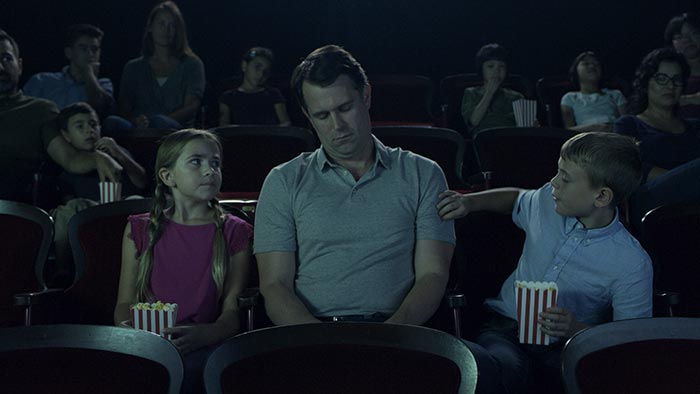
Wake up to the signs of sleep apnoea
If this looks like you or a loved one, you may be at risk.

What is obstructive sleep apnoea?
These interruptions, called apnoeas, are caused by the collapse of soft tissue in the airway, which prevents oxygen from reaching the lungs. Sleep apnoea can have a serious impact on energy, mental performance, and long-term health—but there are effective treatments available to counteract these symptoms.* *WebMD Medical Reference reviewed by Nayana Ambardekar, MD on September 18, 2018.
Obstructive sleep apnoea is a common sleep disorder characterised by repeated interruptions in breathing throughout the sleep cycle.
Do I have sleep apnoea?
Sleep apnoea affects millions of Australians. The majority of sufferers go undiagnosed. Find out if you or your loved one is at risk by taking a short quiz.
Sleep apnoea symptoms include:

Loud persistent snoring

Witnessed pauses in breathing

Choking or gasping for air during sleep

Sleepiness during routine activities

Frequent visits to the bathroom

Early morning headaches

Excessive daytime fatigue

Depression or irritability

Restless sleep
About 80%
of Australians affected by sleep apnoea are undiagnosed.*

*Young T, et al. Epidemiology of obstructive sleep apnea: a population health perspective. AJRCCM 2002;165:1217-1239.
Sleep apnoea can affect your health.
Find out if you are at risk.
What are the risks of untreated sleep apnoea?
Sleep apnoea can have serious short and long-term health risks if left untreated, including:






Mayo Clinic, “Sleep Apnea Complications,” 25 July 2018. www.mayoclinic.org/diseases-conditions/sleep-apnea/symptoms-causes/syc-20377631.




